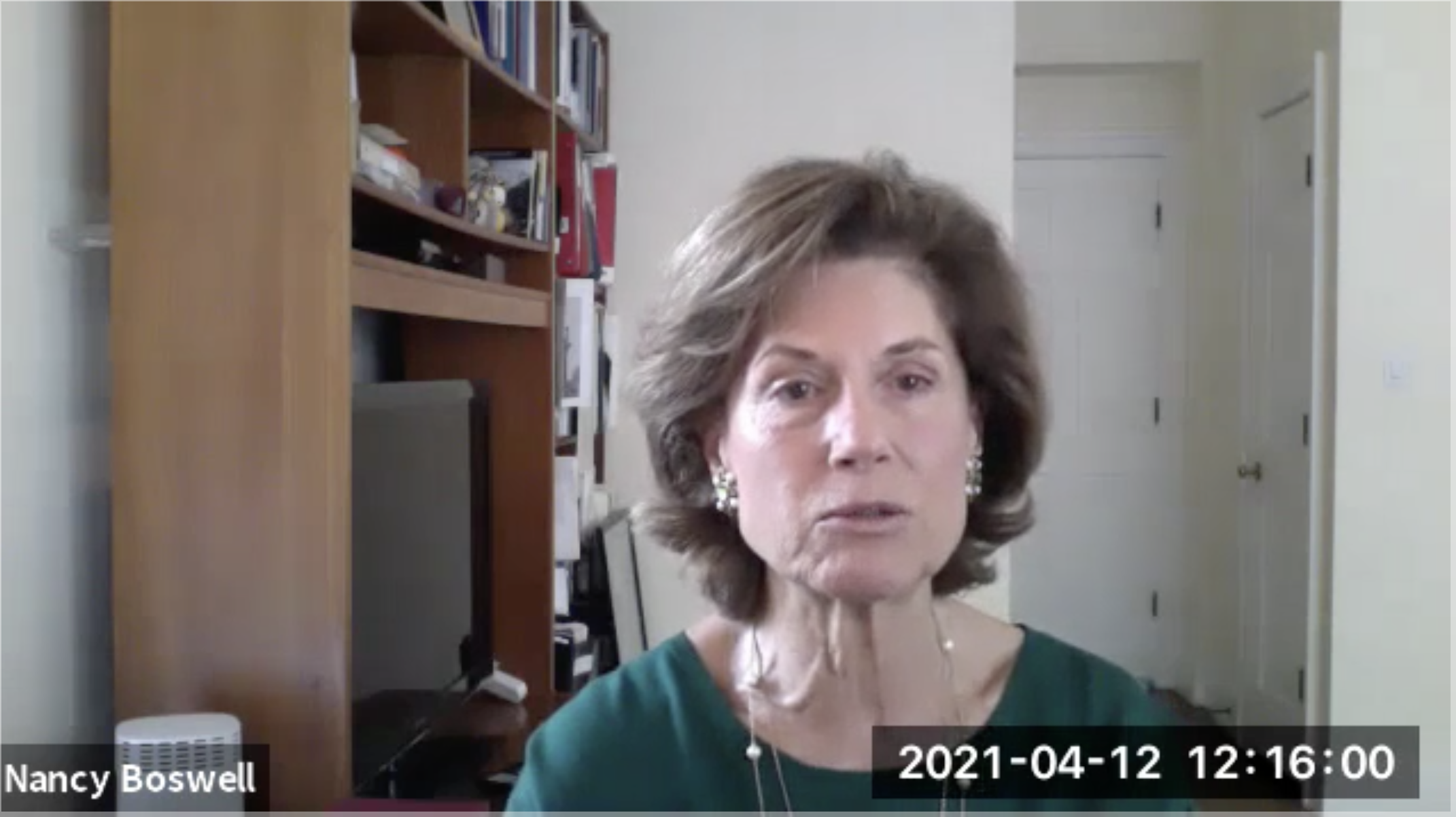
Restoring Public Integrity: Recommendations for the Biden Administration
On April 12, 2021, the U.S. and International Anti-Corruption Law Program, led by Professor Nancy Boswell, former U.S. Transparency International President, organized a webinar with leading experts to formulate some recommendations for the Biden Administration to restore public integrity, both in the U.S. and abroad. Among the speakers were Walther Shaub, former Director of the U.S. Office of Government Ethics; Ches Garrison, Senior Council on the Senate Judiciary Committee and Criminal Justice & Counterterrorism Subcommittee; Lucinda Low, acting Chair of the Coalition for Integrity; and Dragos Kos, Chair of OECD Working Group on Bribery.
The panel reviewed and commented various issues on which President Biden has committed to take action in an effort to restore public integrity, transparency, and regain trust and respect for the rule of law in America. In light of the developments in recent years, the new Biden Administration needs to address corruption as a core national security concern in an effort to further empower oversight bodies and depoliticize law enforcement bodies.
The panelists addressed what they consider the main elements of the Biden Administration’s anti-corruption agenda: protection of whistleblowers; conflicts of interest across all branches; Executive Power’s overreach; the need to enhance general disclosure and transparency obligations of all agencies; and re-establish the U.S.’ international commitment to fight against corruption.
The first issue is the protection of whistleblowers. The weakening of civil service protections continue to perpetuate corruption. The ability of federal employees to reject unlawful orders or uphold the rule of law is made possible by the fact that they have due process rights. Although some may campaign that it is hard to fire a federal employee, it is important to make the distinction that such difficulty and those due process rights exist for the public’s benefit, not the federal employee’s.
The second big topic is the conflicts of interest management in all three branches of government, coupled with the strengthening of investigative mechanisms. Specifically for presidential conflicts, one suggestion was to either divest conflicting financial interests or recuse from participating in things affecting the President’s financial interests. Some NGOs that work on anti-corruption in the U.S. advocate for strengthened requirements for transparency about a President’s business interests, including the release of tax returns for the last 10 years. They also recommend divestiture of assets, or a requirement that if a trust is set up, it has to be genuinely independent. Disclosure requirements for the family members of government officials should also be enforced. The Congress should have enhanced investigative tools to make sure the President’s disclosure requirements are met. For example, it would be good to provide Congress with some expedited mechanism to enforce subpoenas through courts. Similar problems of conflicts of interest should be addressed in regard to the members of Congress. Congress should ban members of Congress from holding outside positions and subject them to the conflict-of-interest law, which should require them to divest assets, just as the executive branch should.
The third topic that should be covered is executive overreach. There is a need in the United States to find institutional and legal alternatives that would avoid some of the executive branch’s ability to influence the Department of Justice and the Attorney General. At the same time, the President’s office should be more restrained in working on governmental matters with “independent counsel.” The Office of Federal Ethics needs the power to enforce investigations and there should be an administrative mechanism that could be appealed to the Federal Circuit Court of Appeals for minimum due process reviews.
The fourth point is increased transparency and disclosure across the entire Administration. One way to achieve this would be to pass the Disclose Act which, following Citizens United, highlights the important issue of “dark money” groups organizing under the nonprofit sections of the tax code that have been able to spend billions of dollars to influence elections without disclosure.
The fifth issue is the fight against corruption internationally. It is hard today to distinguish domestic from international corruption. For this reason, a new approach is needed in U.S. foreign security policies to recognize the harmful effects of corruption on the U.S. internal and external interests, and the U.S. should have a consistent policy of exercising pressure internationally to hold all people involved in corrupt practices accountable.